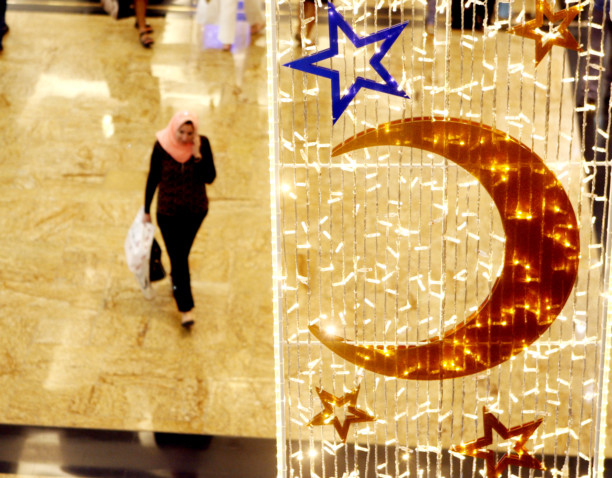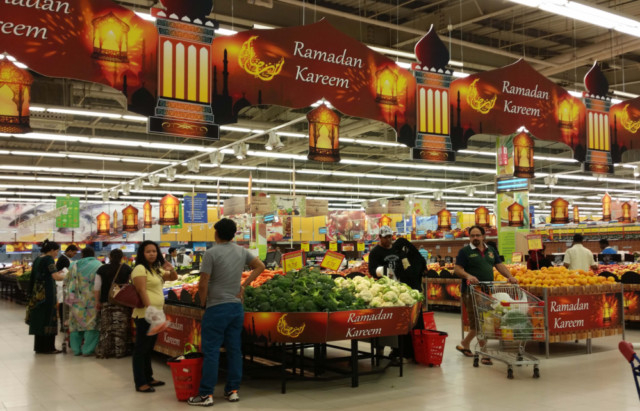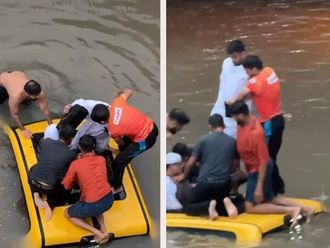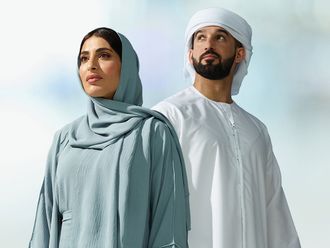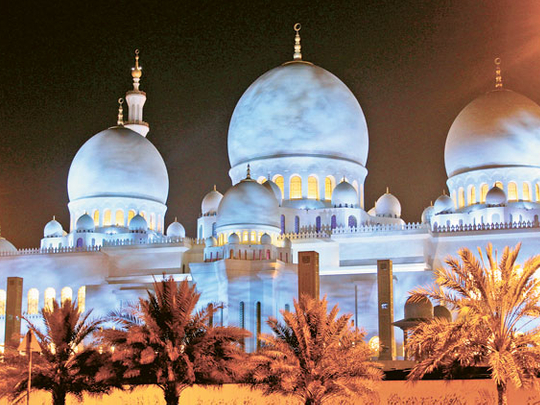
Ramadan is now upon us, ushering a month of spirituality, fasting, charity and sharing. For the next 29 or 30 days, depending on the span of lunar month, a series of lifestyle changes – at home and work – will take place in the UAE, and elsewhere in the Muslim world.
Worshippers will rise before dawn for the traditional suhour meal to help them cope with fasting during daylight hours.
Office timings will be reduced by two hours in most cases; some starting later while others ending earlier than usual. A little before sundown, family and friends will get together for iftar, the meal taken to end the day’s fast.
At night, mosques will be full, with worshippers congregating for the long Taraweeh prayers. Shops and restaurants will stay open longer, some till shortly before dawn. Ramadan will end with the Eid Al Fitr festival, celebrating the spiritual accomplishments earned during the religious month.
Meaning of Ramadan
The word Ramadan has its roots in the Arabic word of ‘Al Ramad’, referring to intense heat and dryness. The word conveys the hardship of fasting as well as the ‘burning’ away of sins by this act of worship.
It is the name of the ninth month of the Islamic calendar. Ramadan is one of the ‘five pillars’ of Islam and obligatory on every able-bodied adult Muslim, who must give up food and drink from dawn to sunset.
Ramadan dos and don’ts
- The obligation to fast is waived for Muslims who are ill or travelling. However, they have to make up the missed days after Ramadan.
- Women who are pregnant, breastfeeding or menstruating are also excused, but must make up the days afterwards.
- Besides giving up food and drink during the day, worshippers must also avoid cursing, lying or backbiting
- Using eye-drops or perfume does not break the fast, nor does brushing the teeth.
- It is encouraged to have the predawn suhour meal, which helps endure hunger during the day
Guide for non-Muslims in Ramadan
Eating, drinking or smoking in public, or in the car, is not allowed from dawn to sunset
It is cordial to join friends and colleagues for iftar, the sunset meal which ends the day’s fast
Modest clothing is recommended
Listening to loud music is discouraged, out of respect for the spiritual month
It is good to greet Muslims with the saying Ramadan Kareem or Ramadan Mubarak at the start of Ramadan
Don’t indulge in public displays of affection
Take advantage of public lectures explaining the significance of Ramadan
Taraweeh prayers
During Ramadan, special night prayers called Taraweeh are held in mosques. Unlike the five daily prayers, they are not obligatory. However, they are highly encouraged. Taraweeh immediately follows the night prayer called Isha, which will conclude a little after 9am during this month. Usually lasting an hour (till around 10pm this Ramadan), Taraweeh are held in units of prayer called rak’aa, until the number reaches eight or 20, depending on the mosque they are performed in. There is no fixed number of rak’aa for Taraweeh, which are held two-by-two rak’aa. They are prayed exactly the same way as obligatory prayers in other respects. However, they usually include longer recitations of the Quran. Taraweeh can also be prayed at home, in groups or individually.
The last 10 nights and the Night of Decree
The last 10 nights or Ramadan are considered especially holy. Muslims believe the Quran was revealed to the Prophet Mohammad (PBUH) in one of the last ten nights of the month. That night, the date of which is not specifically known, is called the Night of Decree. Muslims worship even more strongly in the last nights to ensure they thereby ‘catch’ the Night of Decree, worship wherein is better than 1,000 months, as the Quran says.
Fasting in summer
Ramadan this year will cover most of June and a few days of July, meaning the days will be long and hot. On average, the fasting hours – between dawn and sunset – will last around 15 hours each day this Ramadan, with dawn around 4am and sunset around 7pm in Dubai.
As Ramadan moves through the seasons, it has been coinciding with summer for the past few years. In fact, Ramadan, which comes around ten days earlier on the Gregorian calendar every year, will continue to be hot for the next four or five years in the UAE.
Islamic Calendar
Muslims follow a lunar calendar known as the Hijri (Migration) year, named after the migration of the Prophet Mohammad (PBUH) from Makkah to Medina. The Islamic year Hijri 1 corresponds to 622AD. We are currently in the Hijri year 1437. The Islamic year has 12 months and is around 10 days shorter than the solar Gregorian year. This is why Ramadan, and other
Hijri months, begin around 10 days ‘earlier’ with respect to the Gregorian year.
Months
1 Muharram
2 Safar
3 Rabi Al Awwal
4 Rabi Al Thani
5 Jumada Al Ula
6 Jumada Al Akhira
7 Rajab
8 Sha’aban
9 Ramadan
10 Shawwal
11 Dhu Al Qa’da
12 Dhu Al Hijja
Dates
Muslims typically end their fast with dates and water, in line with the practice or Sunnah of Prophet Mohammad (PBUH). Dates, native to the UAE and region, have also been the preferred form of nourishment because of their high-nutritional value, availability and affordability. Research show dates are easy to digest, and don’t tax the digestive system after a long, hot day of fasting. Their high-sugar content deliver near-instant energy and prepare the body to receive a bigger meal, making them the ideal food for iftar.
The sound of iftar
Since the 1960s, Dubai Police has kept alive the tradition of firing cannons at sunset, the time for iftar, throughout Ramadan to signal the end of the day’s fast.
‘Boom!’ It is the familiar sound of a cannon going off at sunset in Ramadan, which signals the end of the day’s fast. Many long-time residents say it has become part and parcel of their Ramadan experience, evoking the nostalgia of Ramadan from decades ago. To newcomers and children, it still adds excitement as they countdown to the boom. The firing of the cannon is an old Ramadan tradition that is believed to have originated in Egypt to announce iftar. Since then the practice has spread to most Arab countries. Dubai Police’s Weapons and Ammunition
Department of the General Department of Services and Supplies is responsible for the Ramadan cannon firing programme.
Cannon firing programme
Each cannon is fired once to announce the start of Ramadan
Once every day to announce iftar
Twice in a row to announce Eid Al Fitr
Twice in the morning of Eid Al Fitr, after Eid prayers.
Twice in a row after Eid Al Adha prayers
The canons can be seen during Ramadan in Bur Dubai, near Deira prayer grounds; and near Al Mamzar park; and three in Bur Dubai area (one each Al Karama prayer grounds); Jumeirah Beach Residence and Burj Khalifa.
Wudu, the ‘key to prayer’
To perform the Salah or prayer, Muslims first do ablution, called Wudu. One must wash or rinse the following:
Salah, the Muslim prayer
The Arabic word Salah is loosely translated as “prayer” in English and refers to the formal ritual of the five daily prayers that Muslims perform.
It starts in the standing position, with the hands first raised to the ears to begin the prayer.
The arms are then folded while the worshiper recites portions of the Quran.
The worshiper then bows in the Ruku position at the waist, with the back parallel to the ground, with hands resting on knees for support.
He or she then prostrates on the ground in Sujood, with the forehead, nose, palms, knees and toes touching the ground.
The worshiper then sits in the Tashahhud positon shown here.
He or she ‘exists’ the prayer after turning the face to the right and then to the left to say the Salam.
The Qiblah
In Salah, Muslims, no matter where they are, face the Kaaba in Makkah, Saudi Arabia. The Qiblah is the direction pointing to the Kaaba, a cube-shaped building made of stone that Muslims believe was originally built by Prophet Ibrahim (PBUH) and his son Prophet Ismail (PBUH). Muslims stand in neat rows behind the Imam, the prayer leader, all facing the Qiblah.
By the numbers
4,800+ mosques in the UAE
2,200+ mosques in Abu Dhabi
1,400+ mosques in Dubai
600+ mosques in Sharjah


